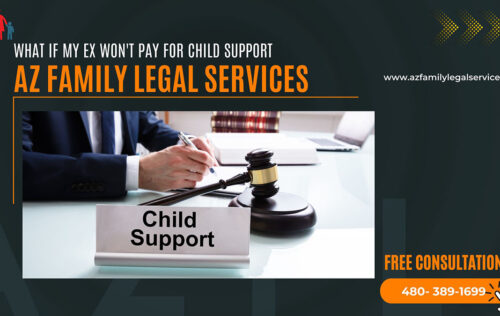Filing for Divorce in Arizona- Arizona Family Law

When contemplating a divorce in Arizona, understanding the legal procedures and requirements for filing is crucial. At AZ Family Legal Services, we’re committed to providing detailed guidance on filing for divorce in Arizona. This comprehensive guide aims to navigate you through the process, ensuring clarity and understanding at each step.
Understanding the Residency Requirements
Before filing for divorce in Arizona, ensure that you or your spouse meets the state’s residency requirements. At least one spouse must have lived in Arizona for a minimum of 90 days before filing.
Arizona is a no-fault divorce state, meaning you do not need to prove fault or wrongdoing by either party to obtain a divorce. The only ground for divorce in Arizona is that the marriage is “irretrievably broken,” and there’s no chance of reconciliation.
Legal Process for Filing Divorce
Step 1: Filing the Petition
The divorce process in Arizona begins by filing a Petition for Dissolution of Marriage with the Superior Court in the county where either you or your spouse resides. This legal document outlines the terms of the divorce, such as child custody, support, and property division.
Step 2: Serving the Petition
After filing, the Petition must be served to the other spouse, who then has a specific timeframe to respond. Service can be done by a process server or through certified mail with a return receipt requested.
Step 3: Disclosure and Discovery
Both parties are required to provide full financial disclosure of assets, debts, and income through a process called “disclosure and discovery.” This ensures transparency and fairness in dividing marital assets.
Step 4: Negotiation or Mediation
Following disclosure, negotiations or mediation sessions may take place to resolve issues like child custody, support, and property division. If an agreement is reached, it’s submitted to the court for approval.
Step 5: Court Proceedings
In case negotiations fail, the divorce case proceeds to court. A judge will review the case and make decisions on matters unresolved by the spouses. The court’s decisions become legally binding.
Important Considerations
Child Custody and Support
Determining child custody and support involves the best interests of the child. Courts in Arizona encourage co-parenting and aim to ensure the child’s well-being.
Property Division
Arizona follows community property laws, meaning marital property acquired during the marriage is generally divided equally. However, the court considers various factors for an equitable distribution.
Legal Assistance
Seeking legal counsel is highly recommended when filing for divorce in Arizona. An experienced family law attorney can provide guidance, ensure legal compliance, and protect your rights throughout the process.
Conclusion
Filing for divorce in Arizona involves a structured legal process with various complexities. At AZ Family Legal Services, we recognize the challenges individuals face during this period and aim to provide compassionate guidance and professional legal support.
Understanding the steps involved and seeking legal assistance can streamline the process and ensure that your rights and interests are protected. For personalized legal advice and support in your divorce journey, contact us. Our dedicated team is here to assist you through this challenging time.



